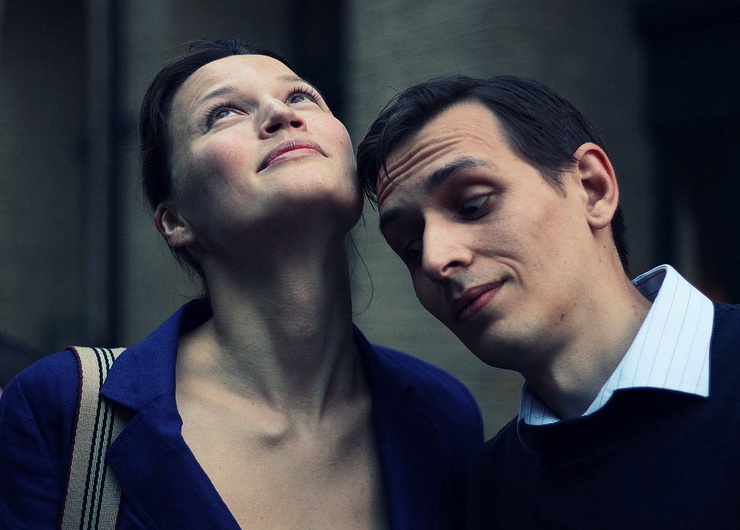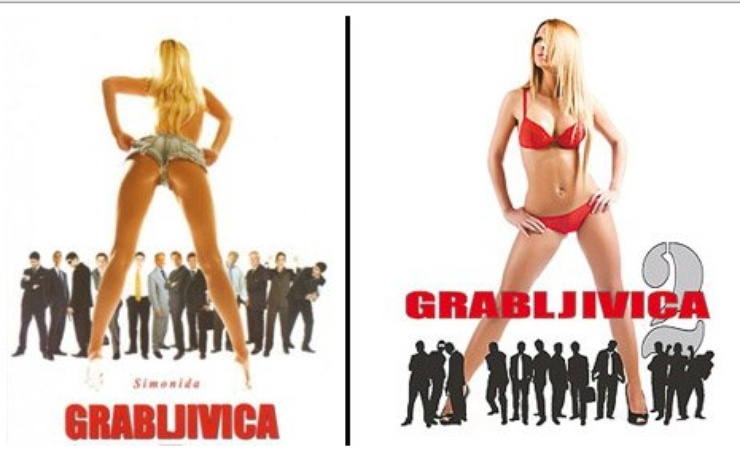
Are Balkan women more promiscuous?
Published on
It's official: more women are approaching men in the dating stakes and a recent book in Serbia reveals a more liberal attitude. So is the Balkan woman moving towards a western, less conservative European model? We hear from Balkan guys and girls
'From what I have seen in the last two decades, women are becoming more likely to approach a man rather than always waiting for the man to ‘make the first move’,’ explains Tony White, a British Australian transactional analyst. However, there’s a catch; these approaches usually remain limited to ‘first base’. ‘Most women will not sexually approach a man with the idea of having full sexual contact. That motive for the sexual approach remains in the realm of the male psyche, so not much has changed really.’

Understanding promiscuity
However, there are some exceptions from the rule. ‘Some women can have a number of different male partners in a relatively short space of time,’ explains White. ‘Most women who enter such a phase of promiscuity usually have a low self-esteem and thus the repeated sexual contacts can be a kind of self harm which is an expression of their self loathing. It’s just not a natural thing for women to do. At the same time a man who has a series of female sexual partners in a short space of time might be viewed as successful one but to be honest, I don’t think people view such a person in a favourable light.’
'Women are first to condemn a member of their own sex'
The controversial Serbian rapper Ognjen Kostic aka Struka, who often sings about promiscuous women, agrees: ‘The Balkans is still a conservative region. For men promiscuity is understood as a virtue while girls are criticised. Women are also the first to condemn a member of their own sex. If something is characterised as bad it should be same for everyone.’ But at the same time, Struka also says: ‘Criticism (from the women) should be constructive, to make girls think about their behaviour and to stay on the right track.’
Predator
One recent controversial book on the subject is based on a true story of a young woman who gradually becomes promiscuous. Over 130, 000 copies of Grabljivica ('Predator') have been printed for a price of 199 dinars each in Serbia. A website soon followed with a forum where women discuss men, sex and are able to write to the main character of the book in the hunt for advice. It proves that the taboo has definitely shaken up the minds of new generations of women. The book was slated as sex-tinged ‘pink novel’, to which its author retorts via email, ‘What does it means to be promiscuous? Who decides how many partners you’re allowed or not?’ Simonida Milojkovic, who is also a Serbian journalist, admits it’s discriminatory to say that being a ‘female predator’ is unhealthy and unnatural for a woman: ‘However, just as we women don’t like men who behave better than the most well-trained puppy, is how men don’t like women who ‘attack’ and chase them. I respect women who go against it, but then they shouldn’t complain and cry because they have to sleep alone.’

Whatever the polemic, the book is a hit. 'A lot of guys are scared of the new, reversed roles but are quite keen to become ‘victims’ of the new, ‘predator’ woman,’ says Matko Cerniar, 28, offering a male perspective from Croatia. ‘I don’t like the term predator,’ admits one female reader from Montenegro, ‘but I’ve had many sexual partners. It’s part of maturing. Many behave in a similar way but prefer to keep it discreet. I’m not ashamed of my choices but I do hate the question of how many men I’ve had so far. That makes me a bit ashamed, but just because of the criticism in society I guess.’ Simonida confirms that its normal to have a more secret sex life in Serbia. ‘There’s no difference between the west and here, just that the former are more open.’
Western perspective
No wonder Balkan women are more conservative. ‘Women in Serbia are conservative in the sense that they prefer to depend on someone for their financial state and happiness,’ says Belarusian Alla Levcovets, 23, who lived in the UK before moving to Serbia half a year ago. ‘In general, women here prefer men to be dominant in a relationship. The situation is different in western Europe where women are independent, prefer to earn their own money and where marrying early is highly unpopular.’ The average marrying age is after 25 and around 30 in Sweden and Denmark. ‘In the last decade there’s been pressure to give birth before turning 30,’ says Marija Senic, 24, from Serbia. ‘But more and more are panicking less, unlike our mothers who more commonly married in their early twenties. Women should enjoy their youths, date more men and not stay with that first boyfriend like our mothers did. Open relationships aren’t a bad concept, although I’m not sure how widely accepted that is here.'
'Don't stay with that first boyfriend like our mothers did'
The undeniable western influence first came in through the media, bringing more self-confidence, freedom and new horizons. ‘Western culture is appealing because it envelopes a sense of ‘freedom’ which other cultures don’t share – though ‘freedom’ can be both positive and negative,’ says Macedonian Saska Dimitrovska, 23. The question is if the possibility for new choices really goes along with the current social climate, strong-rooted habits and, after all, a female’s nature.
Images: main (cc) Έλενα Λαγαρία/ Elena Lagaria/ Flickr; in-text man and woman gagilas/ Flickr; book cover 'Grabljivica'



